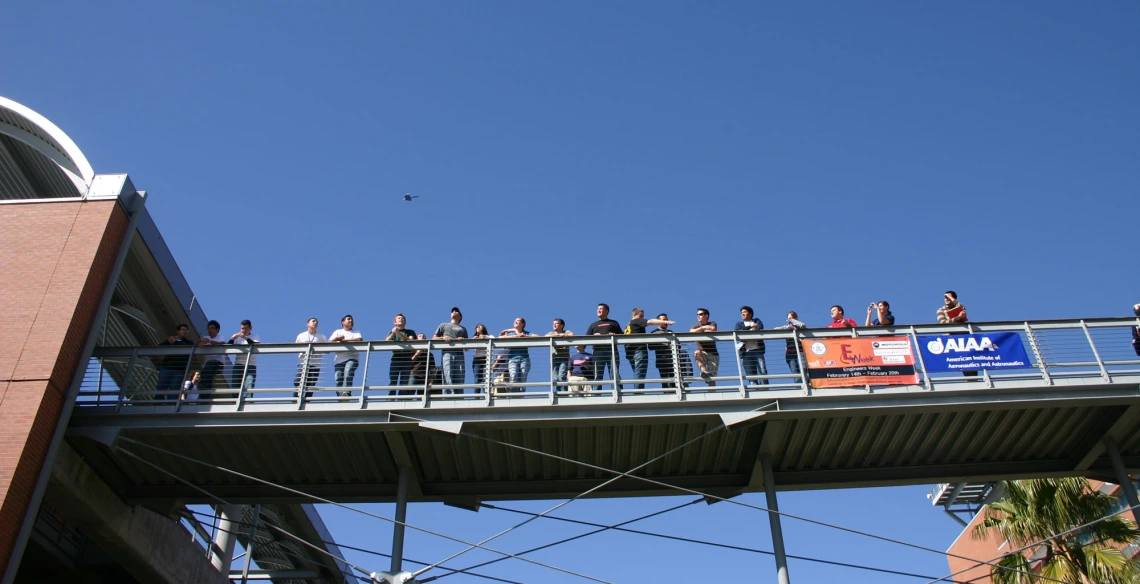No Fooling: Students Refurbish Rails at Aerospace and Mechanical Engineering Building
Professional society spiffs up its home building in gratitude to department and university.

Students frequently use the top railings of the Aerospace and Mechanical Engineering Building to test aerodynamic designs, like these students competing during E-week 2010. AME students got together recently and refurbished all 1,800 square feet of wooden area that line the top of the rails.
Instead of designing new pranks for April Fool's Day, a group of engineering students from the Department of Aerospace and Mechanical Engineering decided to make a difference in their environment. The AME students spent their April 1 weekend refurbishing the wood-lined railings that surround the classrooms, lecture halls and workshops of the AME buildings at 1130 N. Mountain Ave. on the north side of the University of Arizona campus.
Five shifts of five to 10 students apiece spent three days sanding, staining, re-staining, varnishing and re-varnishing the 1,800 square feet of wooden surface area that tops the railings, which can mostly be seen from the courtyard between the north and south buildings.
More than 75 percent of the people who worked on the project are members of the student chapter of the American Institute of Aeronautics and Astronautics, or AIAA, the professional society for the field of aerospace engineering, and the rest are non-affiliated AME students, said UA AIAA president Ryan Crompton.
"We came up with the original idea that, as a professional society, we had a responsibility to give back to the department and university which has given us so much," Crompton said. "A lot of AIAA members were eager to volunteer, since they could see how big a difference it would make."
"I'm very impressed with the dedication and initiative of our AIAA students to undertake a project such as this," said Dr. Jeff Jacobs, head of the UA Department of Aerospace and Mechanical Engineering. "It shows a level of commitment that we should all be particularly proud of."
The railings line the breezeways of the two buildings that make up the Aerospace and Mechanical Engineering building at the northwest corner of Mountain Avenue and Speedway Boulevard. Part of the UA College of Engineering, the building was designed to resemble an airplane hangar and was completed in 1997. It houses a number of workshops and research areas, including a low-speed wind tunnel used for designing and testing new aerodynamic designs. Besides aerodynamics, the building is also home to widely acclaimed robotics research, advanced micro and nanosystems study, biomedical engineering, a hydrodynamics laboratory and more.
"We are really happy with how the project improved our home for us, and for future generations of AME students," Crompton said.

